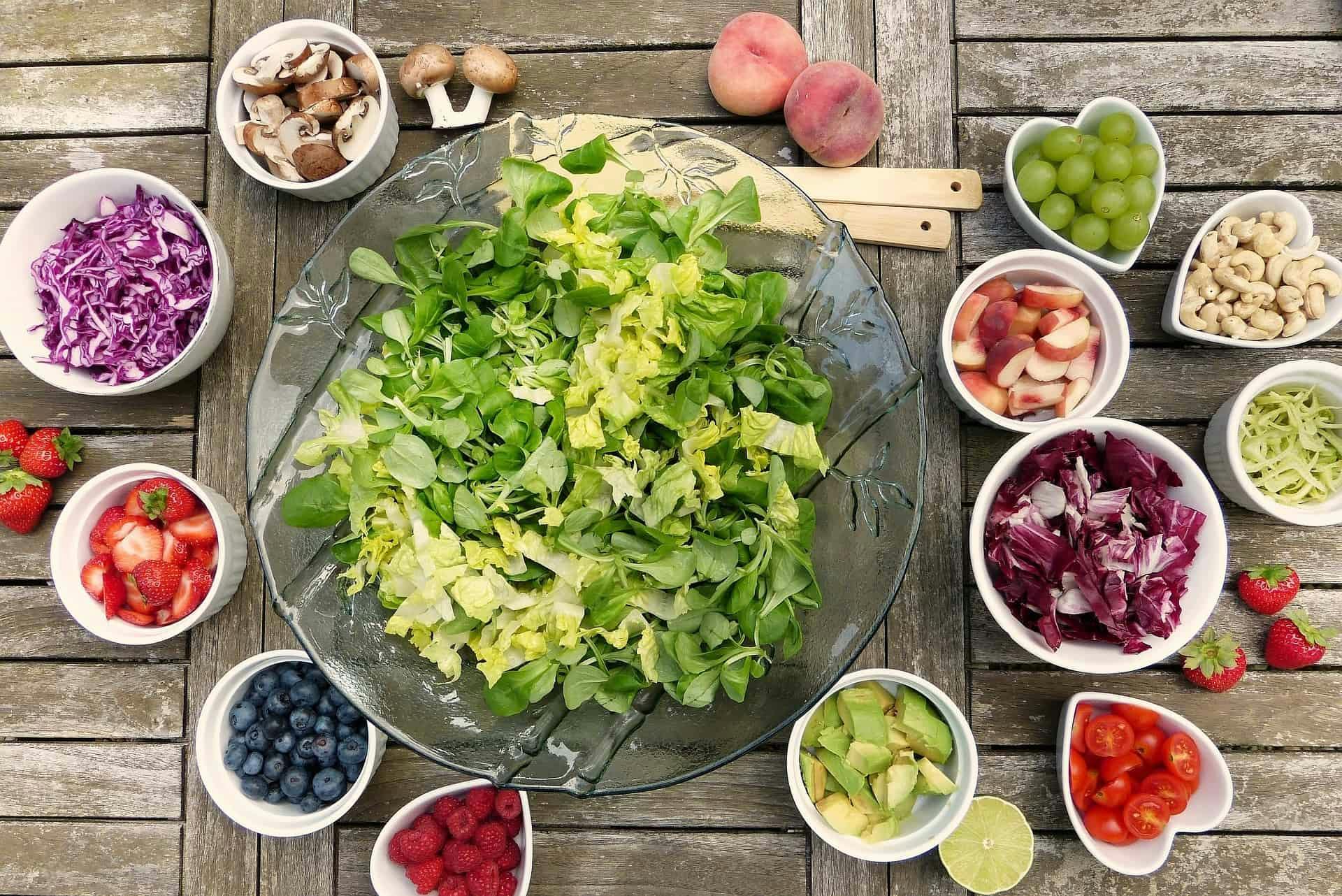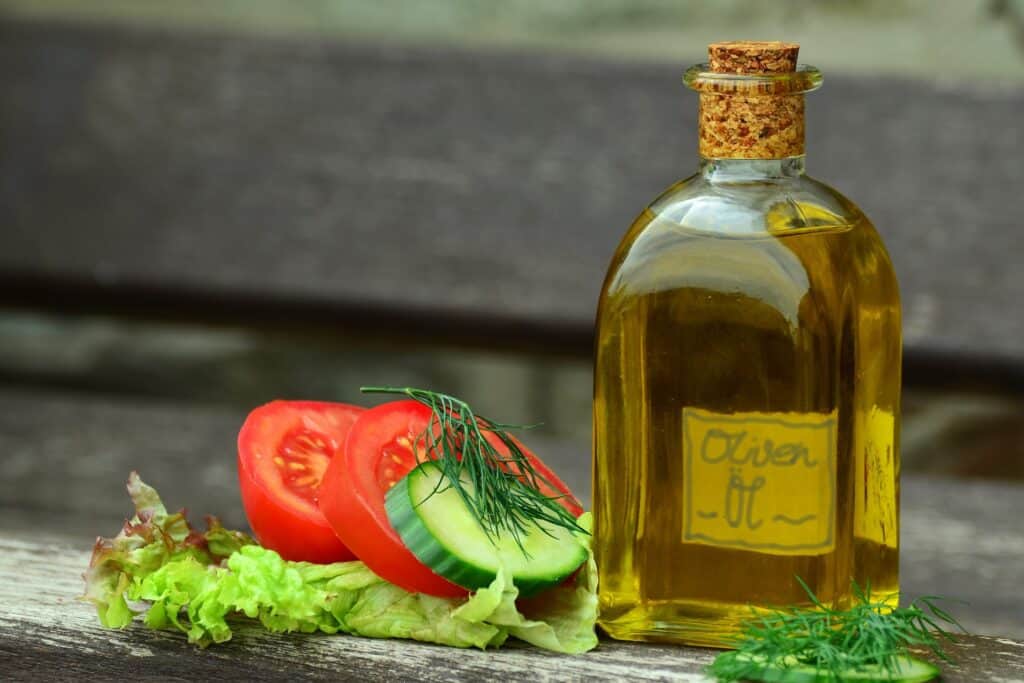


Find foods you can eat.
Low FODMAP Salad: How to make an IBS-friendly salad
Published on January 20, 2023Before you started following a low FODMAP diet, you may have felt your GI tract revolted any time you ate a fruit or a vegetable. You are not alone in this thinking (honestly, it is quite common)! But I’m happy to report that fruits and vegetables can easily be enjoyed on a low FODMAP diet. You may even find that the fiber content from these fruits and veggies helps your GI symptoms. One of my favorite ways to include these food groups is by making low FODMAP salads. Spoiler alert: salads don’t have to be plain and boring. Use these steps below to build your perfect low FODMAP salad.
STEP 1: Choose a base
The most common salad base is lettuce. This can be any type of low FODMAP lettuce such as kale, arugula, romaine, butter lettuce, or iceberg. When choosing a low FODMAP lettuce, it is important to be aware of low FODMAP portion sizes. For example, baby spinach is low FODMAP at 1.5 cup serving, but moderately high in FODMAPs at 2 ¾ cup. You can also mix a few different lettuce options together to add some variety in the textures and flavors of your salad!
Lettuce isn’t the only thing that you can use for your salad base. You can also use low FODMAP fruit for a fruit salad, a low FODMAP grain, such as quinoa or pasta, or a vegetable, such as potatoes, for a potato salad.
STEP 2: Add a grain
If you chose a lettuce for your salad base, the next step will be to add a grain. Adding a grain (or even a starchy vegetable) can help add bulk and fiber to your salad, which can help you feel full and satisfied after eating. Some great low FODMAP grain options include quinoa, brown rice, and farro (low FODMAP at 1/3 cup cooked). You can also choose a starchy veggie such as potatoes, canned hominy, or canned chickpeas (low FODMAP at ¼ cup).
STEP 3: Choose your Low FODMAP salad vegetable toppings
Next, we will add some low FODMAP veggies to your salad. This is where it gets a little tricky because we really want to be careful with adhering to low FODMAP portion sizes. There are some vegetables that have portion size restrictions but are still allowed and should be included to help you add more variety to your low FODMAP diet. Try adding cucumber, tomato, carrots, radish, bell pepper, heart of palms, and olives to your salad. The Monash low FODMAP app is a great resource for determining appropriate low FODMAP portion sizes.
Some people also like to top their salads with fruit. If this is you, have at it! Like the recommendation above, it is important to be mindful of low FODMAP portion sizes. Some great fruit option to choose from include: blueberries, strawberries, raspberries, or oranges.
STEP 4: Choose your protein source for your low FODMAP salad
Adding a protein source to your salad will help balance your blood sugar and help you feel more satisfied after eating. The great news about this is that meat is FODMAP free (yes, you read that right). FODMAPs are carbohydrates so just plain (before it is seasoned) protein sources like chicken, fish, eggs, turkey, and beef are completely FODMAP free. To keep your meat low in FODMAPs, choose low FODMAP seasonings and marinades such as Fody Foods, Smoke n Sanity, or you can make your own seasoning or marinade. If you do not eat meat, you can still add low FODMAP protein sources to your salads such as firm or extra firm tofu. However, please note that the low FODMAP portion size of tofu is 1 cup. You can also add low FODMAP cheeses to your salad for additional protein and flavor. Try cheddar, feta, or mozzarella to start!
STEP 5: Add additional low FODMAP toppings, nuts or seeds
This next step is optional but can help add more fun and flavor to your salad. Low FODMAP nuts and seeds such as pecans, walnuts, sunflower seeds, or pumpkin seeds will add some heart healthy fats to your salad and can leave you feeling satisfied.
STEP 6: Choose a Low FODMAP salad dressing
The final step in creating your perfect low FODMAP salad is to choose a dressing. You can keep it simple by choosing oil and lemon or vinegar (white vinegar, balsamic, or red wine vinegar), you can make your own low FODMAP dressing, or you can choose a pre-made low FODMAP blend. Adding your dressing will help bring the flavors of your salad together and finalize your perfect low FODMAP salad.
Which salad dressings are low FODMAP?
Several companies make Low FODMAP salad dressings such as Fody Foods or Live Free Foods. There is even a low FODMAP ranch dressing you can buy, though it can be hard to find in-stock online. The easiest way to find a low FODMAP salad dressing is to download the Fig app and search for “salad dressing.” It’s free to do searches on the app.

There are so many combinations of foods you can use to create a low FODMAP salad. Use the 6 steps above as a guide to help add some variety to the typical “boring salad.” Once you try this, you won’t want to have salads any other way!
 Emulsifier-Free Diets For Cavernomas
Emulsifier-Free Diets For Cavernomas Should You Follow a Low Histamine Diet for Long COVID?
Should You Follow a Low Histamine Diet for Long COVID?